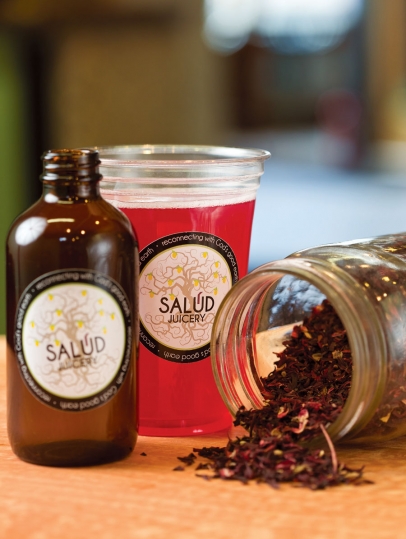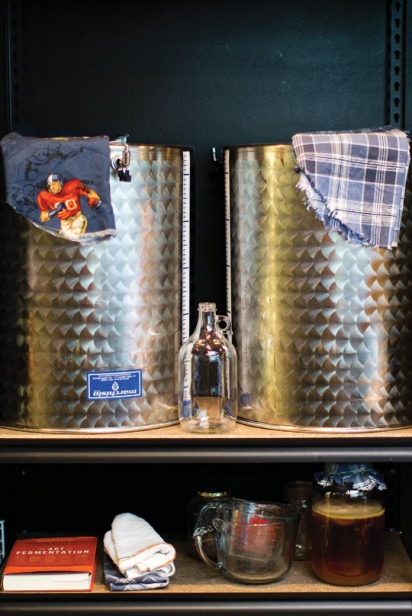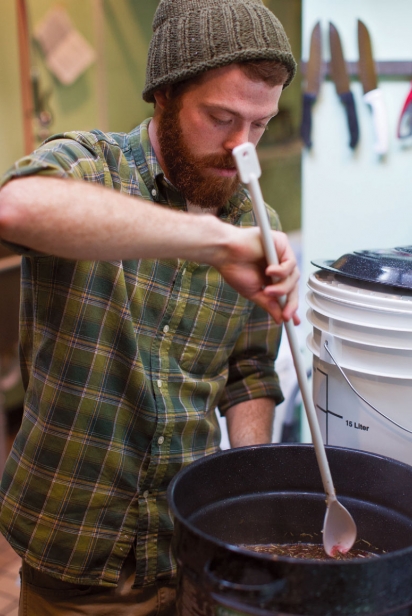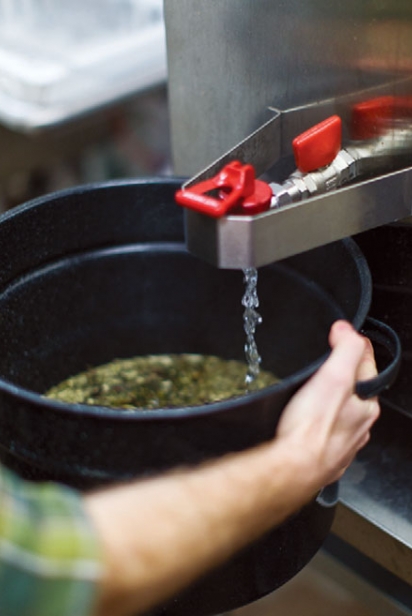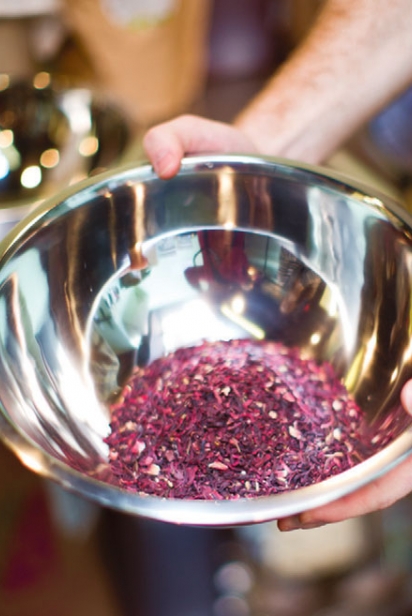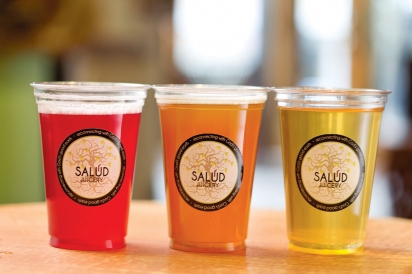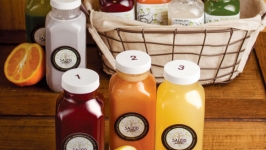Back to Vitality: Salúd Juicery’s Kombucha and Jun Pack a Probiotic Punch
Salúd Juicery is always brewing something new and exciting.
Right now, we’re loving kombucha and jun, two tasty beverages, both made from fermented tea. “It’s crazy, fizzy fun,” says co-owner Ginny Corbett, who first discovered the refreshment while on a “juice safari” in California, where kombucha and jun are much more commonplace. Currently, the community healing space is the only local producer of a nonalcoholic version of the drink and offers three varieties on tap at its two locations. “It’s really refreshing, kind of like concentrated summer,” says Charlie Treichler, kombucha-meister. “It’s effervescent, tart, and sweet. I think because it’s fermented, it’s a lot more complex than a traditional soft drink would be.” In fact, the brew master markets kombucha as an alternative to soda, as it still holds that same fizzy, carbonated taste, but without the harmful chemicals and dyes. We’re completely sold!
Though Asian cultures have been brewing kombucha and jun for thousands of years, it’s only gained popularity in the U.S. within the past few decades.
Corbett attributes the beverage’s growing popularity to the general movement of rediscovering health in our country. Says Corbett, “We’re rediscovering the gut as a second brain — it’s the only organ in our body that works independently of our brain, which I think is amazing because your brain tells your heart and the rest of your organs what to do. So, your emotional and mental health actually depend on your gut health.”
She goes on to describe two pillars of gut health: pH balance and bacteria balance, which kombucha and other probiotic-rich, fermented foods, such as yogurt and sauerkraut, address. “A good, healthy gut bacteria level is 80 percent good bacteria and 20 percent bad bacteria. Kombucha has the good bacteria, or probiotic, which will provide balance, and will help you feel better.”
Corbett notes people can have an allergy to kombucha, just like they can have an allergy to strawberries or nuts, so they might start with a taster before purchasing a 64-ounce growler. However, those who feel hesitation should know that an allergic reaction incredibly uncommon. “Fermentation in general has been a part of our human heritage for thousands of years, and that just gives me a lot of confidence that it’s OK!” says Treichler.
Thus far, the duo says they’ve received an overwhelmingly positive response from those who have tried their “Komburgh- cha” and jun, and it seems they couldn’t be happier to help spread the word about this fantastic, fermented drink. Says Corbett, “Salúd is all about coming alongside people while they heal, pointing out alternatives, and assisting people in discovering small, little changes that can change your life.”
Salúd Juicery, 733 Copeland St., Shadyside. 412.683.1064. 348 Beaver St., Sewickley. 412.259.8818. saludjuicery.com.
BREAKING IT DOWN: HOW SALÚD MAKES KOMBUCHA AND JUN
1. Treichler brews a large, strong batch of tea with either sugar or honey, and then dilutes the tea with water for taste.
2. He adds what he calls “starter,” or part of a previously brewed batch of kombucha, which lowers the pH and increases the acidity, creating an ideal environment for the “SCOBY” (Symbiotic Community of Bacteria and Yeast) to grow.
3. He covers the concoction with cloth for fermentation in Salúd’s stainless steel vats (or a smaller jar, if he’s experimenting), which takes five to seven days. During this time, he works to maintain pH and a consistent temperature, while tasting constantly for the goal level of tartness.
4. Treichler says a one- or two-day waiting period during the fermentation process before serving makes all the difference between a “really good batch” and a “mediocre batch.” Once the taste is right, he removes the cultures and the elixir is ready for drinking.
Salúd offers three types of kombucha and jun on tap at both of its locations: its traditional “Kom-burghcha,” a hibiscus lemongrass jun, and a coconut-flavored jun, which Corbett notes is a healthier alternative to an energy drink. After opening a take-home bottle, Treichler recommends consuming the drink right away for the best taste, though it will keep for several days in the refrigerator.
Kombucha vs Jun
Though jun can be viewed as a subcategory of kombucha, a few fundamental differences separate the two.
Kombucha is made from fermented raw sugar and black tea, while jun is made from raw honey and green or white tea. Also, jun typically takes longer to ferment.


